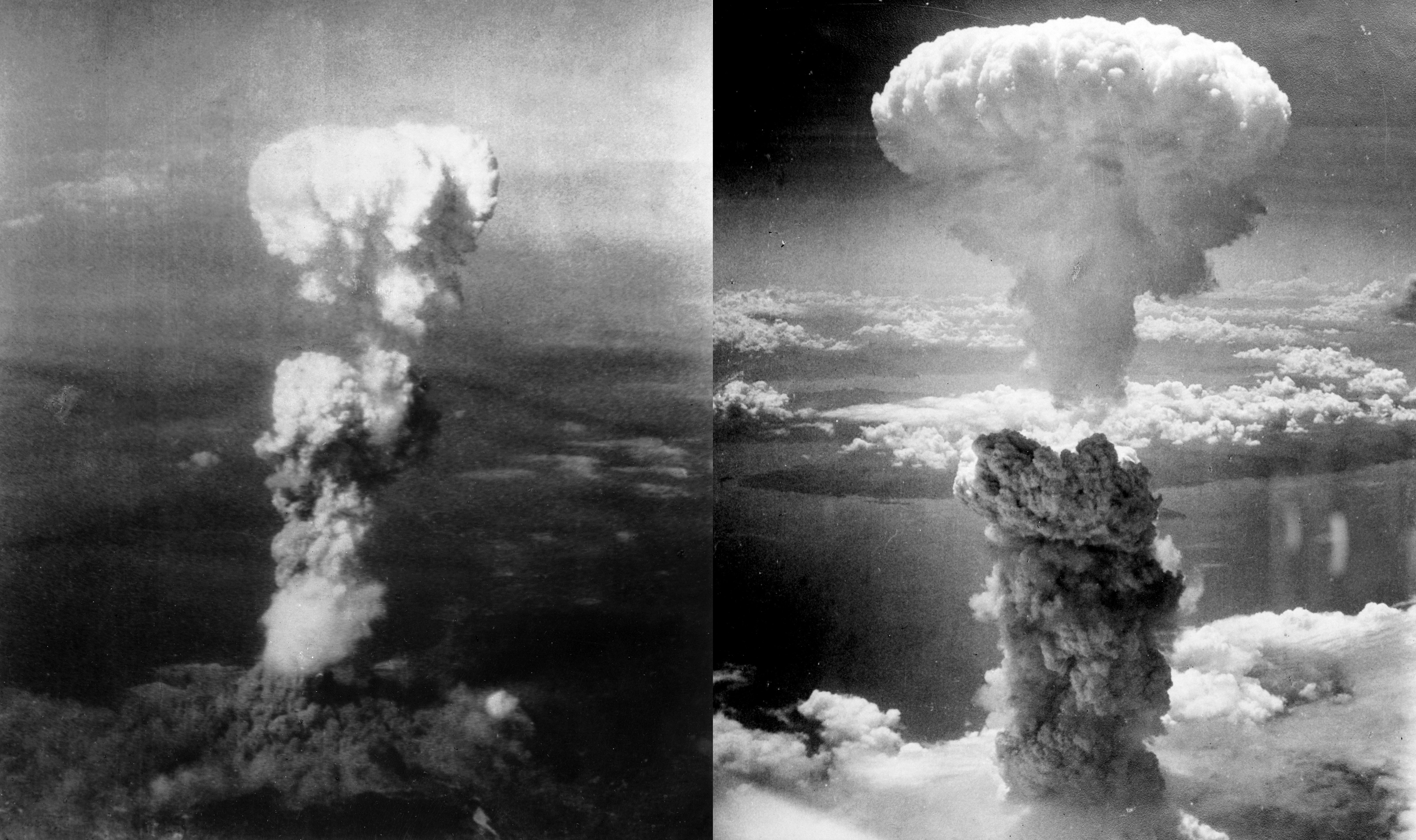From Wikipedia:
During World War II, nearly 500,000 Purple Heart medals were manufactured in anticipation of the estimated casualties resulting from the planned Allied invasion of Japan. To the present date, all the American military casualties of the sixty-five years following the end of World War II — including the Korean and Vietnam Wars — have not exceeded that number. In 2003, there were still 120,000 of these Purple Heart medals in stock.[2] There are so many in surplus that combat units in Iraq and Afghanistan are able to keep Purple Hearts on-hand for immediate award to wounded soldiers in the field.[2]
Good job, atom bomb.

This is usually my second point one whenever I’m discussing if the atom bomb was a good idea, or a war crime. My first is that there was a coup to prevent the Japanese emperor from surrendering.
For a friend in another forum I once wrote what follows:
Should the U.S. have used the A Bomb? Perhaps the argument some make via historical hindsight is correct. Perhaps the folks of that day had no excuse for not realizing the time had passed when Japan was an opponent. (One hint learned after the war was that B29-dropped mines in Japan’s coastal waterways sank more tonnage than the Navy did in the entire war. The B29s mined faster than the mines could be cleared.) Perhaps the U.S. could have snatched some Japanese leaders and provided them a display. Yet this scenario assumes that no in the meantime would exist. It gives no credence to the repeated lesson of the Pacific war that Japan intended to fight to the last soldier with no surrender. It ignores U.S. radio intercept awareness of Japan moving huge forces into defense positions near locations the U.S. would have to attack to invade Japan. It forgets the reasoning of the people who attacked Pearl Harbor, despite some of them knowing the eventual outcome. Having started in China 10 years earlier, Japan saw that the U.S. had progressively gotten more alienated from Japan, and figured that it was “now or never.” As a matter of fact, Japan did not immediately surrender even after the second weapon destroyed Nagasaki. The Japanese leaders debated several days before accepting the ultimatum hammered out by the Allies at Potsdam.
Tibbets, the pilot who flew the plane bombing Hiroshima, did name the plane for his mother. Further, as the ranking officer with immediate charge of the planes which had trained to drop atomic weapons, he pulled rank to take the pilot position of that flight. He never regretted the decision.
Among my friends at the church to which I belong is an older gentleman. He relates watching German subs sink tankers within plain sight of his Florida coast home. Skirting age limits, he enlisted, ending up a B29 tail gunner over Japan. He related to me the story of his B29 being flipped by the firestorm of the incendiary attacked city below. (Engineers did not believe the crew’s story until shown bent girders inside the airplane.) This fellow tells me that he is convinced that the atomic attack on Japan saved far more Japanese lives than were lost.
The day Hiroshima was bombed, my not yet dad was swimming laps in the pool at the Army Air Force Base in Kingman, AZ. A collegiate swimmer, physics was his course of study. He was now a captain, and a B29 wing commander, with the wing soon to depart for the Pacific. As he reached the end of a lap, his copilot interrupted his spin turn by tapping him on the shoulder. “What does it mean that we have dropped an atomic bomb on Japan?” Climbing out of the pool, my dad said, “It means you and I will not have to drop bombs on the Japanese and that we will be able to go back to our lives.” He and his copilot headed to the communications shack to read the latest on the teletype. My dad told me of a lot of rejoicing, with one of the stated reasons the number of Japanese women and children who would now live.
For the ideological crusaders who want to put the nuclear genie back in the bottle, the fact that the atomic bomb ended WWII and saved hundreds of thousands of lives is the ultimate inconvenient truth. For that reason, they will never stop trying to revise history. They’ve already thrown out every canard they can think of, such as ridiculously low casualty projections for the invasion of the Japanese home islands in the teeth of the massive casualties at Iwo Jima and Okinawa, specious claims that the surrender was “really” caused by the Russian attack into Manchuria in spite of the fact that the Russians had no amphibious capability and thus represented no threat to Japan proper, and even the non sequiter that the bomb couldn’t have caused the surrender because some Japanese official happened not to mention it in his diary the day after. It’s sad that so many old timers who actually knew firsthand what happened are now passing from the scene. The rest of us need to read the source material and learn the truth. Otherwise we can be sure that a brand new one will be invented for us.